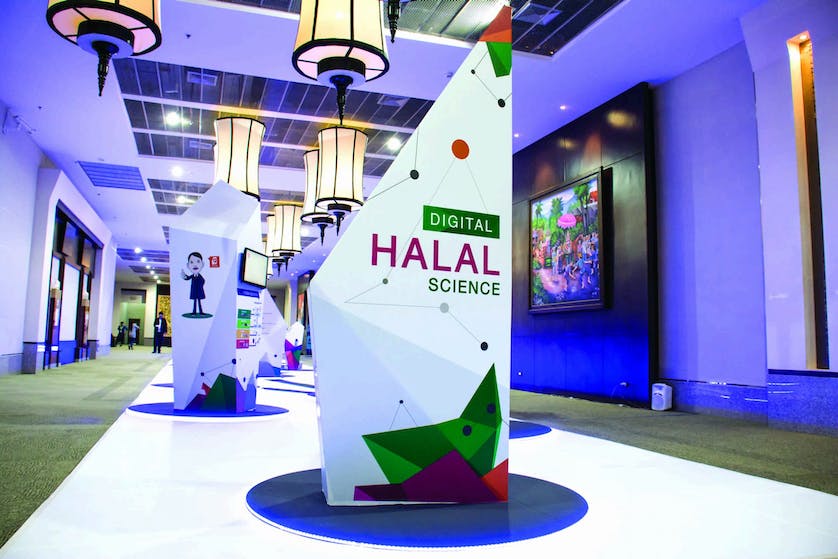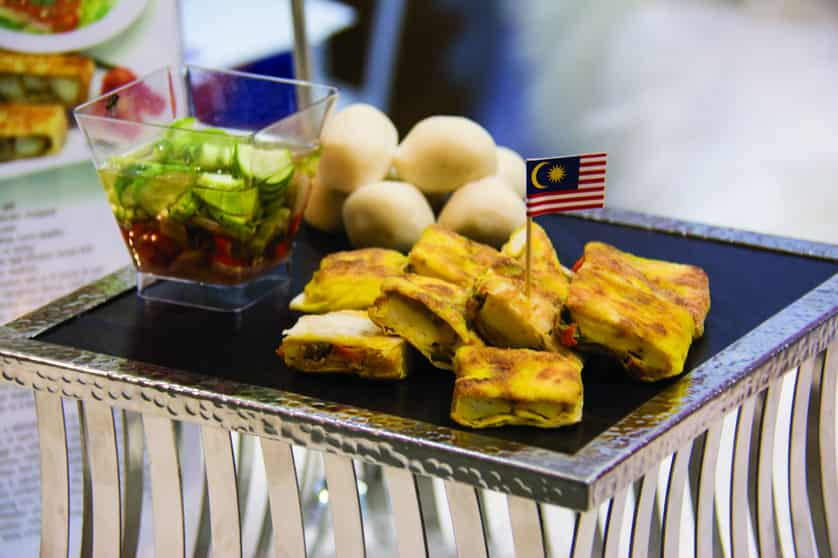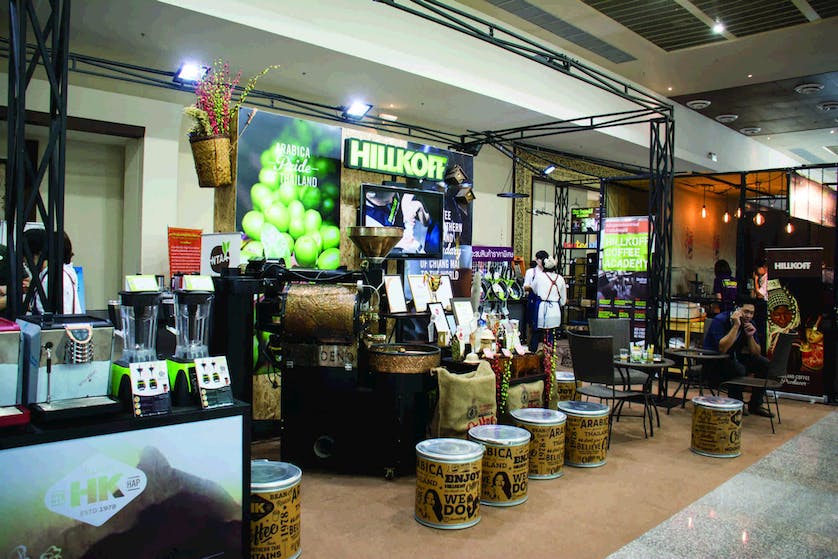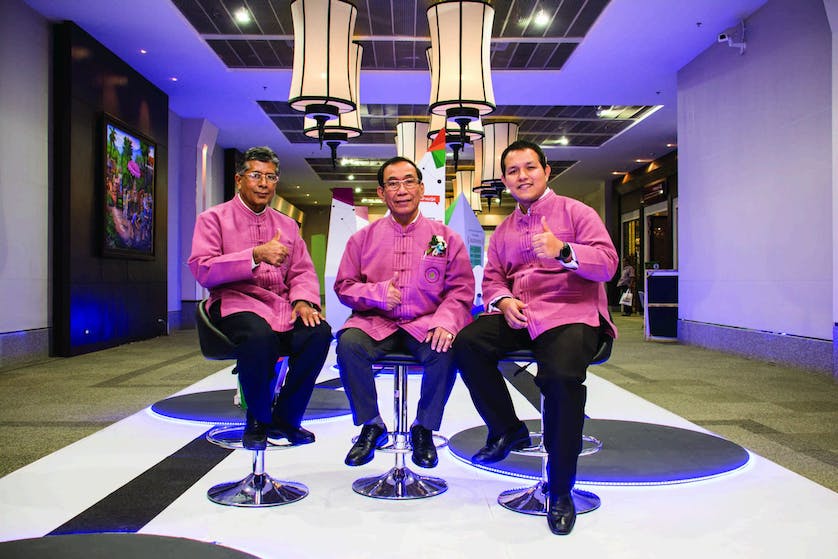Thailand was the first country in the world to have its very own Halal Standard Institute and Halal Science Center.
This impressive, but little known fact, is why for many years Thailand was one of the top five non-Muslim nations to export Halal products.
Today, with the growing markets, Thailand sits at number 11 amongst global exporters, generating a significant 210 billion baht each year for the Thai economy.

In 1948, a Thai company was planning to export chicken to Kuwait when they were told by the client that they must be Halal. Without any knowledge of what this process entailed, the company approached the Advisor to HM the King on Islamic Affairs, who led them through the process, a task he continued to do for many companies for many years to come. It wasn’t until 1995 when the Central Islamic Council of Thailand (CICOT) was founded under HM’s advisor, that Halal certifications were issued, an official stamp of Halal approval.
“The world is the limit, if you are certified Halal,” Prof. Dr. Pakorn Preeyakorn, Director of The Halal Standard Institute of Thailand told Citylife. “There are no more boundaries and you have the potential to reach a further 2.1 billion Muslims in the world.”
There are three main organisations which play important roles in Halal certification. Firstly, the Halal Standard Institute of Thailand, under the CICOT, sets standards for Halal, offering support for those aiming to enter Muslim markets. Secondly, the Halal Science Center, Chulalongkorn University, which conducts scientific research in order to maintain standards of Halal. And lastly, the CICOT gives formal approval for Halal certificates and logos.

“There are over 4,000 businesses in Thailand now who have successfully applied for the Halal logo, with many of these companies producing multiple products with the Halal stamp, totaling 120,000 products so far approved by the CICOT. We use religion to certify and science to support,” continued Prof. Dr. Pakorn.
“First of all we offer resources and advice for anyone interested in becoming Halal,” he explained, during an interview at the recent Lanna Expo, where numerous local businesses showed off their Halal certified products. “We also set standards and in order to maintain these standards, we conduct regular checks and tests. We look at everything from basics such as what raw materials or products are permissible in the Koran and what is not. We then also look at the process of production; how an animal is killed or hygiene standards and quality. We assist local companies in approaching international markets and our scientists not only scrutinise and analyse products, but assist in creating new science-based ingredients which can be incorporated into multiple products. This includes everything from food (fresh and processed), medicine, agricultural products, cosmetics and more.”
“The aim is to offer protection to consumers,” said Dr. Pradorn Sureephong, Assistant Director of The Halal Science Center, Chulalongkorn University. “We don’t simply hand out certifications, but also oversee compliance it is important for Muslims to know that once a product is certified, they are free to consume without worry.”
“Often substitute ingredients need to be found,” added Prof. Dr. Pakorn. “For instance some processed foods use pork belly enzymes. Our job is to first of all analyse all products put forward for certification to make sure that they have not inadvertently gone against the laws of Islam. Then we conduct research and find substitute ingredients. In many imported goods, you will see labels indicating the exact and detailed ingredients of the product. Here in Thailand we don’t have that yet, but for our Muslim consumers, this is of great importance. We aren’t here to catch people out. Some things producers simply don’t know. So we offer support. For instance, some vinegars contain a small amount of alcohol. That is not permissible by Islam law and must be replaced with other properties.”

One example of the Halal Science Center of Thailand’s research and development is the Halal Clay Soap. It is believed that, as a Muslim, if you touch something deemed dirty, such as pork, you must wash your hands seven times, one of those times must be washed with earth. Since it is not only impractical, but sometimes unhygienic to wash hands with earth, the Halal Science Center has created the world’s first earth-based soap, a product now being sold as well as emulated worldwide.
“Once consumers are reassured, then they have freedom,” Dr. Pradorn added. “Freedom to buy, to use services and importantly for Thailand, to travel.”
As tourism is one of Thailand’s biggest industries, the Halal Science Center understands the need to provide for thousands of Muslim tourists who arrive in Thailand every single day.
“Halal tourism, especially medical tourism, is very big business here,” continued Dr. Pradorn. “We need to make sure that hospitals are Halal certified. We also offer tourism information to support the ever growing number of visitors. Today, Thailand is rated number eight in the world as a Muslim tourist destination, according to Reuters. If we can offer them more information and support to conform to their faith needs, then the number of tourists can grow exponentially. To that end we have created suggested routes for tourists — from Malaysian border to Chiang Rai — offering them restaurants and services such as spas and shops which have Halal certification, giving information as to where the nearest mosques are and which direction in their hotel room points to Mecca, for instance. An app, called ‘Halal Route’ is under development as we speak and when launched on both iOS and Android, will be of great support to our Muslim visitors.”
Chiang Mai currently has 30-40 restaurants as well as 100-200 businesses certified Halal, and the number is growing. Ninety percent of these businesses are not Muslim owned, many being OTOP and SME exporters while a third are tourism related.
“We are working across the spectrum,” said Prof. Dr. Pakorn. “We are supporting small businesse to help them grow, and we are also working with large businesses. Notably, this year the Prime Minister’s Award, for the first time, had a Halal category.”

Many businesses are now seeing that applying for and gaining the Halal stamp adds real value to their business.
In fact, The Halal Science Center is so successful that it has long been used as a model by many other countries around the world. China, South Korea and Japan, all three nations which are currently expanding their export to Muslim countries, are working with the Halal Science Center to learn from Thailand’s experience. Back when Japan hosted the 1998 Winter Olympics, they consulted Thailand on Halal. Brazil is also looking at the Thai model as an example in implementing a Halal kitchen in their upcoming Olympics. It isn’t just non-Muslim nations who are looking towards Thailand, The Standards and Metrology Institute for the Islamic Countries (SMIIC), of which Thailand is not a member, has officially invited Thailand to sit-in as an observer, due to the Halal Science Center’s great record of achievement.
On a practical level, Chiang Mai has long missed out on the majority of Muslim visitors to Thailand, due to its lack of understanding and support for their religious needs. With a world renowned institute ready to assist in gaining Halal certification and a wealth of knowledge, incentives, advice and support, many more Chiang Mai businesses may find growth with relatively little effort.
